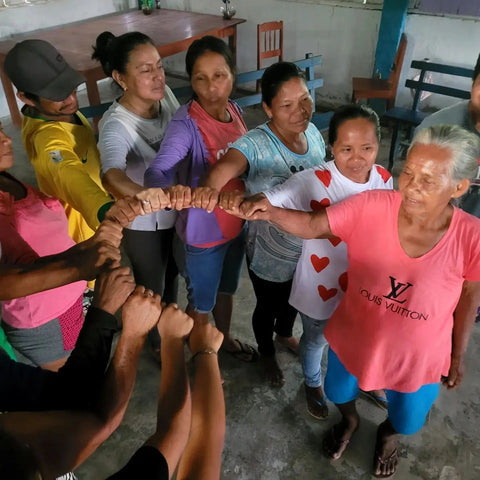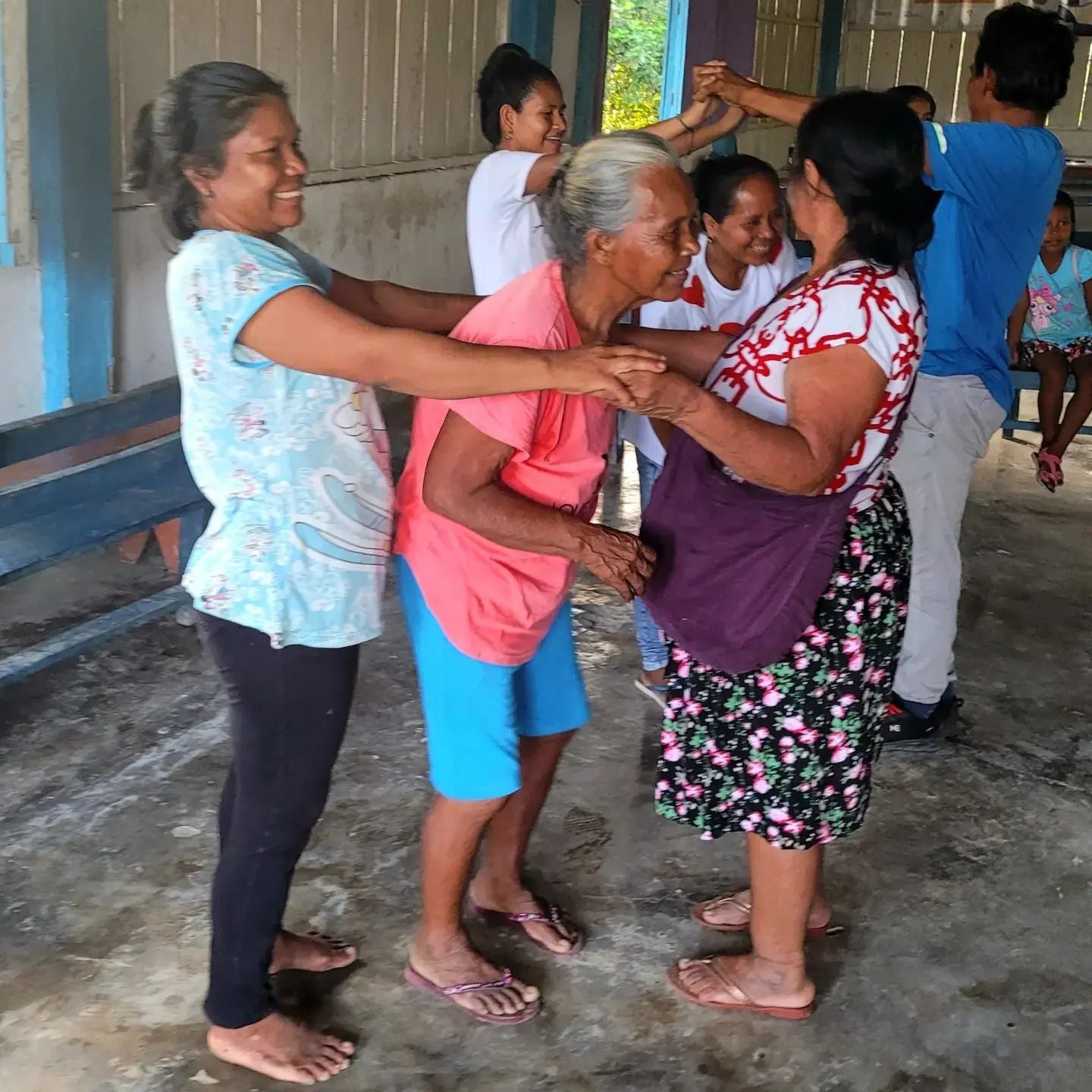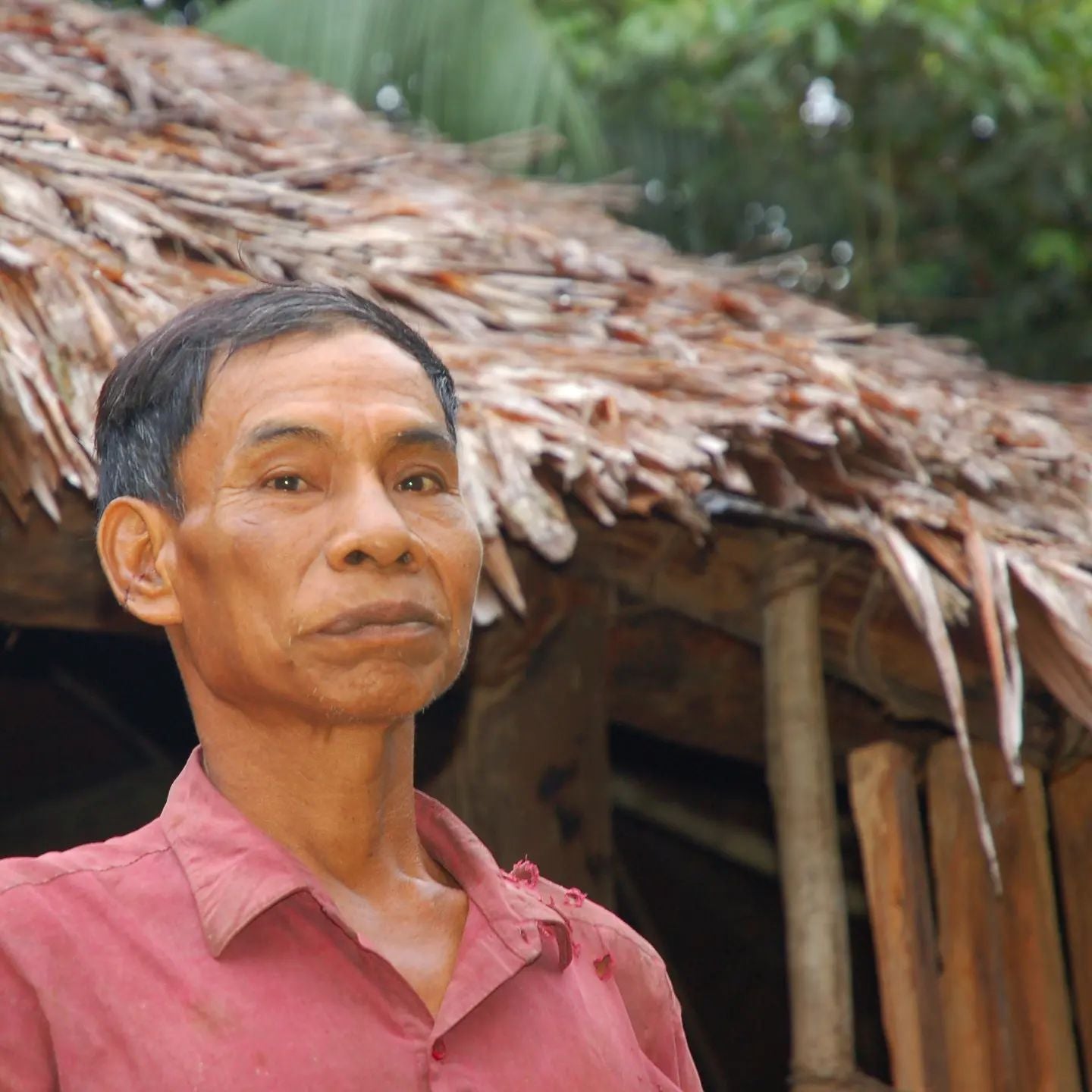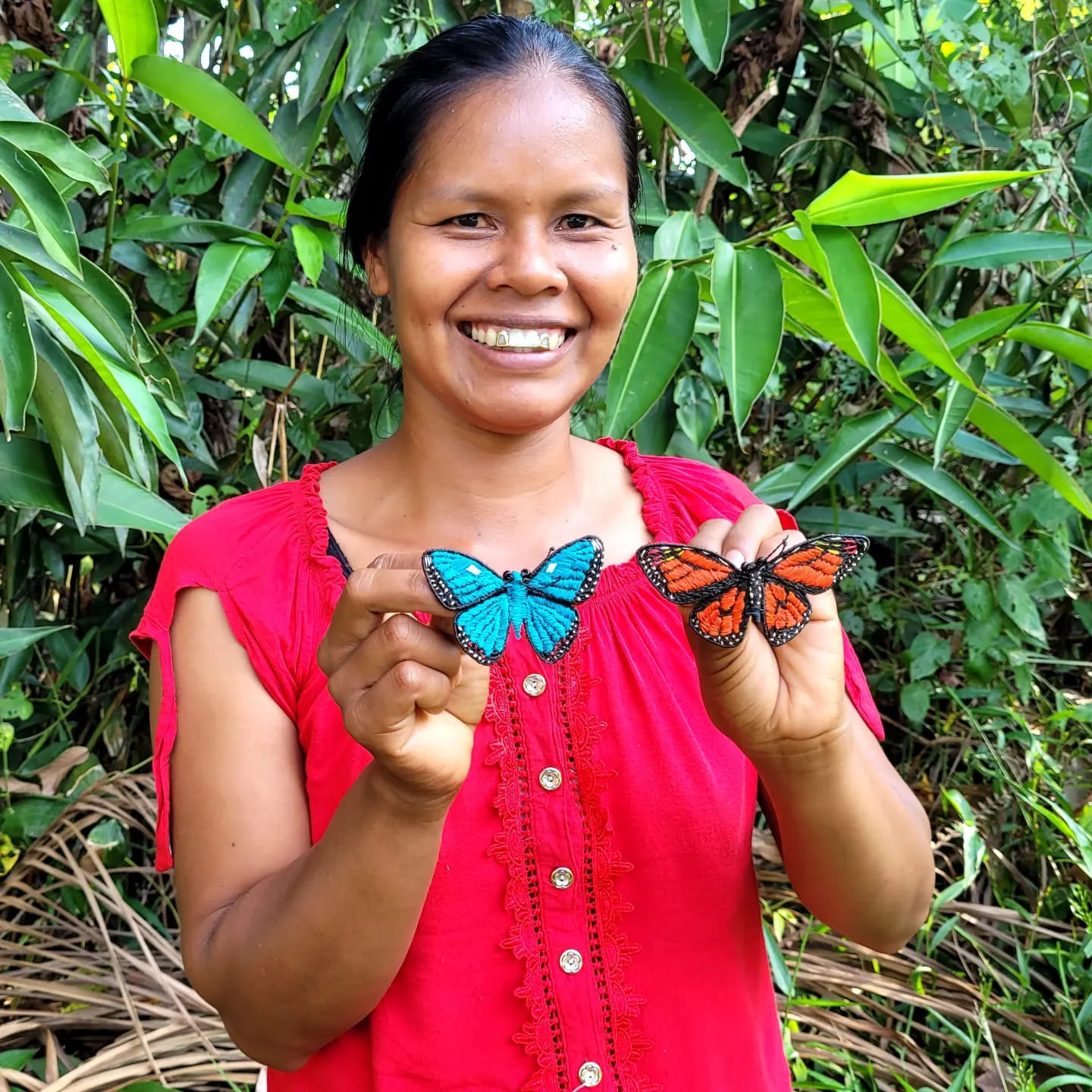by Campbell Plowden
October 2, 2022
We introduced the Alternatives to Violence Project to a few of our partner communities in the Peruvian Amazon in 2018. By early 2022, we had completed two full workshop cycles with a cadre of native apprentice facilitators ready to join a facilitation team. Unfortunately, few people from their communities seemed interested to participate in a Basic workshop. We hoped other communities might like to give this program a try.
On Saturday afternoon, Yully Rojas, Marianela Olaza Arimuya and I took a motorcar from Pebas to the Yagua community of Santa Lucia de Pro. We moved four benches in the community meeting building into a square so people would face each other.

As our start time came and went with only four people present, we were worried our attempt to introduce AVP to this village and neighboring Betania would be short-lived. We were pleasantly surprised that half an hour later, we had added two more benches to accommodate 18 adult participants and some children.
The mini-workshop went well. People welcomed having community agreements focused on respectful listening and behavior. They liked feeling encouraged and safe to share personal experiences. They loved the “light and lively” activities which generated a lot of laughter. Some people immediately expressed their desire to do the full three-day Basic workshop. We told them we would be happy to organize this when they got commitments from at least 16 people to attend.

It was great to see Marianela facilitate in a workshop for the first time, but our failure to convene our usual pre-workshop team meeting left her trying to lead some topics with no preparation.

The other challenge was recognizing that one elder woman who was the traditional leader ("apu") of her community was struggling to understand the questions in Spanish since her native language was Yagua. In Brillo Nuevo, our bilingual facilitators could translate Spanish into Bora when needed, but the Yagua communities in the Ampiyacu have very few native speakers, and most of their residents are non-native mestizos.




